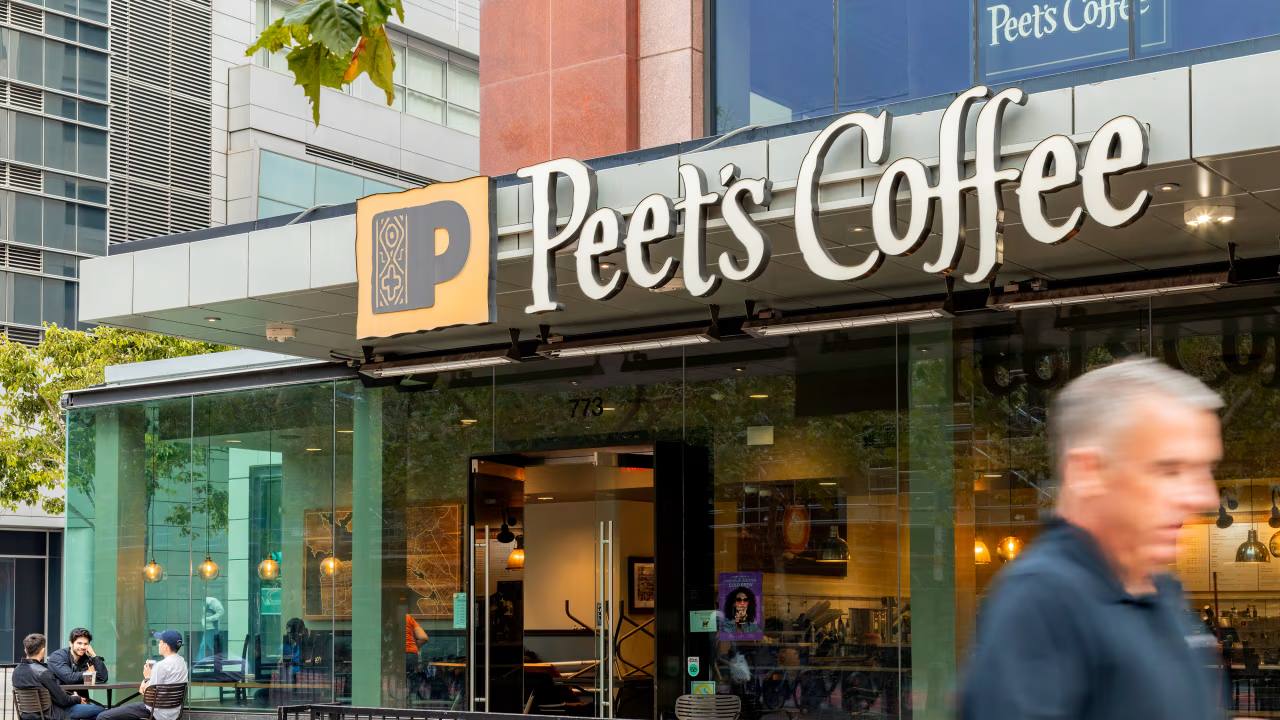
Chamberlains of London – JDE Peet’s has become the center of one of the most significant acquisitions in the global beverage industry. Keurig Dr Pepper made headlines after confirming its intent to purchase the Dutch coffee and tea giant in a staggering deal valued at around $18 billion. While the announcement sent ripples through the financial markets, investors reacted sharply. KDP shares fell nearly 8 percent shortly after the deal was made public.
Meanwhile, JDE Peet’s stock soared by 17 percent, signaling investor optimism about its future under new ownership. This transaction is poised to reshape how both companies operate within the coffee space. Keurig Dr Pepper plans to pay 31.85 euros per share in cash, offering a 33 percent premium over JDE’s 90-day average. In exchange, JDE Peet’s will issue its previously declared dividend before the deal concludes. The combination of enthusiasm and concern now surrounds the implications of this major acquisition.
Keurig Dr Pepper saw in JDE Peet’s a strategic lifeline. As the American company faced shrinking performance in its domestic coffee business, JDE Peet’s represented an opportunity to reinvigorate consumer interest. JDE Peet’s boasts a broad portfolio, strong European presence, and deep connections to home-brewing habits that align with evolving consumer trends. The acquisition is designed to generate cost synergies worth 400 million dollars over the next three years.
It also allows KDP to align with changing preferences in the coffee market, such as at-home brewing and cold coffee trends. By absorbing JDE Peet’s into its operations, Keurig Dr Pepper expects to gain a stronger footing in international markets and diversify its revenue base. This move might reverse the 0.2 percent sales dip that KDP experienced in its U.S. coffee division. The company had been struggling with declines in single-serve pods and Keurig machine shipments, which now might find new relevance through this expansion.
“Read about: This Crispy Potato Patty Recipe Will Change Your Home Dining Forever”
Investors showed mixed reactions after the announcement. Keurig Dr Pepper shares dropped 8 percent during early trading. This decline signals investor doubts about the deal’s scope. Analysts questioned the decision to mix coffee operations with a broader beverage portfolio. Meanwhile, JDE Peet’s stock jumped 17 percent, marking its best trading day. The market response revealed buyer uncertainty and seller optimism. Barclays analysts recalled how the 2018 Keurig–Dr Pepper merger raised concerns. This new deal adds complexity to the evolving corporate story. Investors in Europe and globally now view JDE Peet’s value more positively. New leadership could enhance future growth and strategic direction.
The acquisition of JDE Peet’s is just the beginning of a larger transformation for Keurig Dr Pepper. Once the deal finalizes in the first half of 2026, KDP plans to divide its coffee and beverage divisions into two separate publicly listed companies. This bold decision could effectively undo the 2018 merger that originally created Keurig Dr Pepper. The future coffee-focused company is expected to deliver $16 billion in annual net sales and will be led by current CFO Sudhanshu Priyadarshi.
On the other side, the beverage business will continue under current CEO Tim Cofer, aiming for $11 billion in net annual sales. Such restructuring might better target specific market segments and enable sharper operational focus. By separating the units, KDP may also improve investor confidence, giving stakeholders clearer visibility into each business’s performance. The plan represents a massive shift in strategy as KDP looks to optimize both brand value and operational efficiency in a rapidly changing industry.
“Read more: The Hidden Truth Behind Down Syndrome and Chronic Conditions Every Parent Must Know”
Competition in the global beverage sector keeps increasing, forcing major companies to shift strategies quickly. Keurig Dr Pepper now pursues bold moves to counter unstable commodity prices and evolving consumer preferences. Coca-Cola reportedly plans to sell Costa Coffee, hinting at bigger changes in global coffee investments. Industry players monitor Keurig Dr Pepper’s $18 billion acquisition to see its impact and outcome. Future success depends on smooth integration and the company’s ability to adapt post-split.
JAB Holding no longer controls Keurig Dr Pepper but still owns a majority in JDE Peet’s. The deal signals a new direction for both companies. Rafael Oliveira will continue to lead JDE Peet’s until they finalize the acquisition. Keurig Dr Pepper must now balance market expectations and strategic changes. The company prepares to reshape the coffee and beverage industry landscape after its $18 billion gamble.